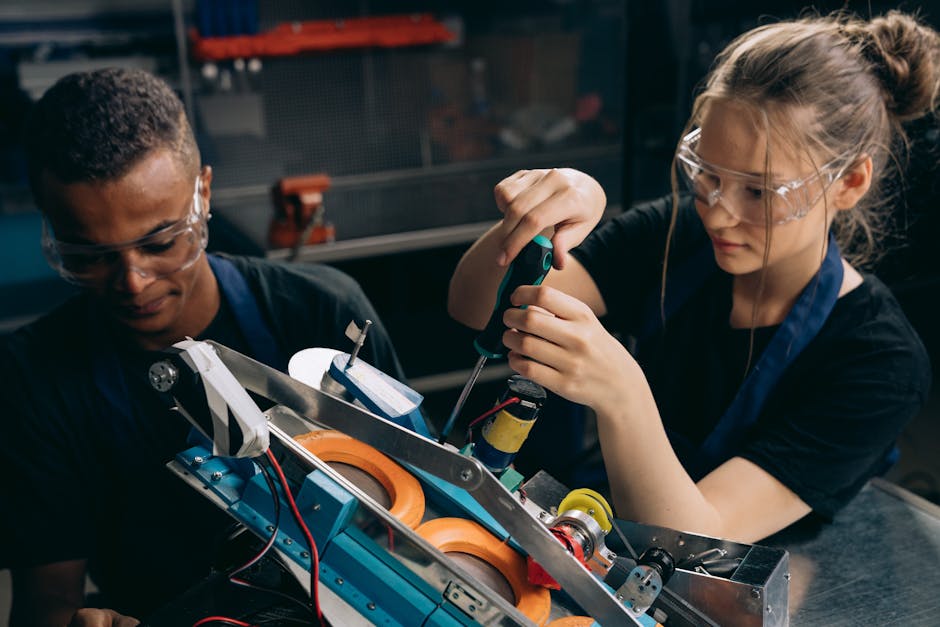Denmark Embraces AI in High Schools: A 2025 Assessment
Danish high school students are increasingly utilizing artificial intelligence (AI) tools in their studies, marking a significant shift in the nation’s educational landscape in 2025. This integration presents both opportunities and challenges, prompting a wider discussion about responsible AI implementation in education and the future of learning. The rapid adoption highlights Denmark’s proactive approach to integrating emerging technologies into its curriculum, but also raises concerns about potential pitfalls.
The Rise of AI in Danish Classrooms
The integration of AI in Danish high schools throughout 2025 has been largely driven by the availability of user-friendly AI tools and a supportive educational environment. Several initiatives have fostered the adoption, including teacher training programs focused on AI literacy and the development of curriculum materials incorporating AI applications. The government’s commitment to digitalization has further fueled this adoption.
Teacher Training and Curriculum Development
Teacher training programs throughout 2025 have focused on equipping educators with the skills necessary to integrate AI effectively into their lessons. This involves not only understanding the technical aspects of AI but also addressing pedagogical implications and ethical considerations. The development of age-appropriate and curriculum-aligned AI tools and resources has been crucial for this successful integration.
The shift towards incorporating AI into the curriculum has been gradual but noticeable. Initial implementation focused on specific subjects like mathematics and science, leveraging AI for problem-solving and data analysis. This broadened throughout 2025 to include AI applications in humanities and social sciences, showcasing the versatility of the technology.
AI Tools Used by Danish Students
Several AI tools are proving popular among Danish high school students in 2025. These range from AI-powered writing assistants that help students improve their essays to AI-driven learning platforms offering personalized tutoring and feedback. The prevalence of readily accessible and user-friendly tools has greatly facilitated the adoption process within schools. However, concerns remain about the potential misuse of these tools, particularly regarding plagiarism and academic integrity.
Popular AI Tools and Their Applications
- Grammarly and QuillBot: Primarily used for grammar and style checking, these tools also offer suggestions for improving sentence structure and vocabulary.
- Khan Academy and other AI-driven learning platforms: Offer personalized learning experiences, adapting to individual student needs and pacing.
- AI-powered research tools: Assist students in gathering information and organizing research materials, though concerns exist about the reliability of information sourced solely from these platforms.
The easy availability of these tools, coupled with a lack of comprehensive guidelines, presents challenges for maintaining academic standards.
The Ethical and Pedagogical Implications
The widespread use of AI in Danish high schools in 2025 raises crucial ethical questions. Concerns about plagiarism, the potential for biased algorithms, and the impact on critical thinking skills are paramount. Educators are grappling with balancing the benefits of AI with the need to ensure students develop essential skills independently, fostering creativity and critical analysis. The emphasis on critical engagement with technology, rather than passive reliance, is gaining traction.
Addressing Ethical Concerns and Promoting Responsible Use
Educational institutions and policymakers are actively developing strategies to address these challenges. These include creating clear guidelines on AI usage, promoting media literacy to help students evaluate information critically, and designing assessments that encourage deep learning and original thought, rather than simply regurgitating AI-generated content. This approach aims to leverage AI’s capabilities while preventing its misuse.
The long-term impact of this integration is still being evaluated, but early indications suggest a need for ongoing assessment and adaptation of educational practices.
The Future of AI in Danish Education
The experience in Denmark in 2025 offers valuable insights into the future of AI in education globally. The country’s proactive approach underscores the importance of strategic planning and proactive policy-making to ensure responsible and beneficial AI integration. This includes ongoing investment in teacher training, the development of ethical guidelines, and continuous monitoring of the impact of AI on student learning outcomes.
Predicting Future Trends and Challenges
- Increased development of specialized AI tools designed for educational use.
- Greater emphasis on teaching students about AI ethics and responsible technology usage.
- Continued debate on the appropriate role of AI in assessment and evaluation.
- The need for adaptable and evolving educational practices to keep pace with technological advancements.
The success of AI integration in Danish schools will depend on a continuous collaborative effort between educators, policymakers, and technology developers.
International Implications and Lessons Learned
Denmark’s experience in 2025 provides a case study for other nations contemplating the integration of AI in their educational systems. The country’s focus on teacher training and the development of supportive infrastructure highlights the importance of a holistic approach that addresses both the technological and pedagogical aspects of AI implementation. The challenges faced in Denmark, particularly concerning ethical considerations and the potential for misuse, serve as valuable lessons for other countries embarking on similar initiatives.
Global Perspectives and Comparative Analysis
The rapid advancement of AI technology necessitates a global conversation on responsible AI integration in education. Sharing best practices, collaborative research, and international cooperation will be crucial in navigating the opportunities and challenges presented by AI in education. International collaboration on ethical guidelines and standards for AI in education is also becoming increasingly important. The Danish experience offers a valuable real-world example for international discussions. By sharing both successes and challenges, Denmark contributes to shaping a more responsible and beneficial future for AI in education globally.

